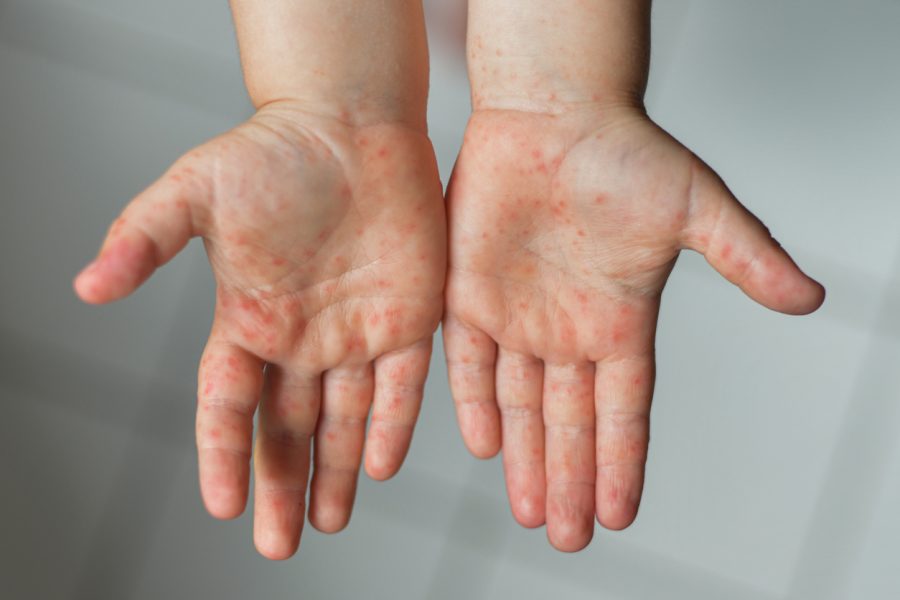
What is monkeypox? Know symptoms, causes, prevention

At a time when a COVID-battered world is trying to get back on its feet, the detection of monkeypox, a rare and dangerous viral disease in Europe and the US, has raised red flags in several countries.
Days after the United Kingdom reported several cases of the virus, the United States on Thursday reported its first infection – a resident of Massachussetts. Reports say the infected person has a travel history to Canada, whose second-largest city Montreal has reported 13 cases of monkeypox. Last year, a resident of Maryland in the US had contracted the virus after returning from Nigeria.
The UK has reported nine cases of the virus ever since it detected the first case on May 6 this year. The first infected person had a travel history to Nigeria. Portugal and Spain have also reported cases of the virus.
Here is all you need to know about the virus:
What is monkeypox?
Monkeypox is a rare, usually mild infection, contracted from infected wild animals in Africa. It was discovered in 1958 when two pox-like outbreaks occurred in colonies of monkeys kept for research, thus lending it its name, says US Centres for Disease Control and Prevention (CDC).
The first human case of monkeypox was discovered in 1970 in the Democratic Republic of Congo (DRC).
Also read: Singapore reports first case of rare monkeypox virus
The disease is similar to smallpox and belongs to the same Orthopoxvirus genus as the variola virus (that responsible for causing smallpox).
Apart from monkeys, the infection has also been detected in squirrels, Gambian pouched rats and dormice.
Even though the disease is endemic to West and Central Africa, mostly tropical rainforests inhabited by animals who carry the virus, its spread to other parts of the globe has become a cause of concern.
Since its discovery in humans in 1970, the virus has been detected in Central and Western African countries like Cameroon, Central African Republic, Gote d’lvoire, Gabon, Liberia, Nigeria, Republic of Congo and Sierra Leone.
The Democratic Republic of Congo reports the maximum cases of the viral disease.
International travel has also spread the disease to Israel, US, Singapore and the UK in the recent years.
Variants
Monkeypox has two types of variants – the Congo strain and the West African strain.
The Congo variant is a dangerous strain with a mortality rate of 10 per cent, while the West Africa strain is milder with a mortality rate of one per cent.
The recent cases reported in the UK are of the West African variant.
How humans contract the disease
Humans can contract the disease by getting bitten by an infected animal, or after coming in contact with its blood, body fluids or fur. Eating the meat of an infected animal that has not been cooked properly could also cause infection.
Among humans, the virus can spread through clothing, bedding or towels used by someone with a rash; touching skin blisters or scabs of an infected person or coming in contact with droplets from his or her cough and sneeze.
Experts also suspect the virus to be sexually transmissible.
Doctors, however, say that the virus doesn’t spread easily among people.
“It is important to emphasise that monkeypox does not spread easily between people and the overall risk to the general public is very low,” Dr Colin Brown, director of Clinical and Emerging Infections at the UK Health Security Agency (UKHSA) has said.
Symptoms
Among humans, monkeypox has an incubation period of 21 days, after which symptoms begin to appear. The symptoms are milder than smallpox and may include fever, headache, muscle ache, exhaustion and swollen lymph nodes.
According to CDC, within one to three days of the onset of the initial symptoms, fever for instance, the patient develops a rash, often beginning on the face and spreading to other parts of the body. The rash progresses through various stages and finally forms a scab before falling off.
The disease often lasts for two to four weeks.
Is it life threatening?
WHO citing studies in central Africa says one in 10 infected people die in the region, where people have less access to healthcare facilities. Most of the patients recover two to four weeks.
How to treat the disease?
There is no proven treatment for the disease. Doctors usually recommend patients to stay in isolation, mostly in a specialist hospital to ensure that the infection doesn’t spread and the symptom are treated.
Countries like the US use the smallpox vaccine, which has been proven to be 85 per cent effective in preventing monkeypox.
Antivirals and vaccinia immune globulin are also used to control monkeypox outbreaks.
Preventive measures
The CDC recommends people to avoid contact with animals in areas where monkeypox is prevalent; avoid touching any materials such as bedding that has been contact with a sick animal.
Isolating infected patients is another way to prevent the disease from spreading.
Also read: Monkeypox virus case confirmed in UK after Nigeria travel link
Practising good hand hygiene – washing hands with soap and water or using an alcohol-based hand sanitizer – is a must after coming in contact with an infected animal or human.
Similarly, healthcare professionals and caregivers should use PPE while interacting with patients.

